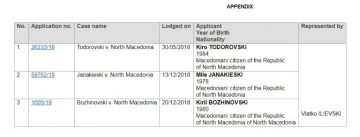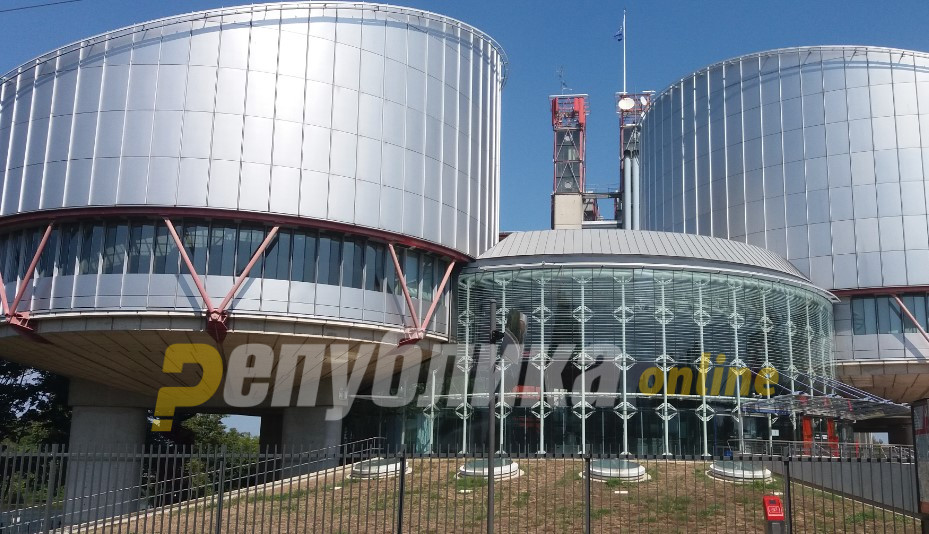After several days of leaks and uncertainty, the European Court of Human Rights in Strasbourg confirmed that it is working on the cases initiated by several victims of political driver persecution in Macedonia.
The cases resolve around the charges filed by the now thoroughly disgraced Special Prosecutor’s Office, which targeted officials of the VMRO-DPMNE party in 2015 and 2016, until the party was driven from office and the SDSM party elevated in its place. In 2016 President Gjorge Ivanov gave pardons to dozens of officials and citizens prosecuted by SPO and also to officials from SDSM, who faced charges of wiretapping. Ivanov explained his decision by stating that the Macedonian political elite is being blackmailed to accept an imposed name change. But under strong international pressure, a new law was adopted under which the recipients of the pardons asked for the pardons to the revoked and the persecution to continue.

ECHR already has precedents that a presidential pardon, once given, can’t be revoked. This was frequently raised by legal experts, even those who supported SDSM and the SPO prosecutions, like professor Goran Kalajdziev. In the course of the trials, a number of former VMRO officials did raise the issue in court, and eventually a group of them submitted their cases to Strasbourg. The court now revealed that these include former Prime Minister Nikola Gruevski, former ministers Gordana Jankuloska, Mile Janakieski, former security chief Saso Mijalkov and others. Jankuloska was recently ordered to begin serving a four year prison sentence in the case used to force Gruevski to seek political asylum in Hungary.
The court has reportedly called on the Macedonian Government to come to an agreement with the plaintiffs within four months. If this does not happen, it’s expected that the court will find in their favor within months. This would likely lead to an order to drop the cases and release Jankuloska from prison, possibly even opening the door to a demand for restitution.




Comments are closed for this post.